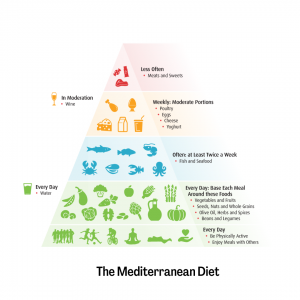Stress and Weight Gain – What is the Link?

Most people know that stress may lead to weight gain, you may even be living with a few extra kilos thanks to the last few years. It has been testing for us all and I know many of you are feeling some unwelcome changes happened during lockdowns. Do you know why or how stress affects your weight?
In times of stress, a number of areas of the brain are driven to action. First, the amygdala, the area of the brain responsible for emotional processes, sends a ‘distress call’ to the hypothalamus. The hypothalamus, otherwise known as the ‘command centre’ of the brain, is the area responsible for creating the ‘fight or flight’ response. This then instructs the adrenal glands to release epinephrine (more familiarly known as adrenaline). This response is ideal for times of short-term stress when we need a burst of extra energy, but what happens in times of prolonged stress?
Have you heard of cortisol?
When we feel stressed over extended periods – for example moving house or a deadline at at work – the adrenal glands release the hormone cortisol. The role of cortisol is to promote the release of glucose (sugars) and lipids (fats) into the blood to be utilised by our muscles; this was important when we were hunters who needed to run for our life from tigers or chasing our food. However, our modern lifestyle is mostly sedentary in comparison, which means if we don’t increase our physical activity levels, we are less efficient at clearing the excess cortisol, glucose and lipids from our system.

Lets talk about glucose and insulin
A rise in blood glucose stimulates the release of insulin; a hormone which promotes the uptake of glucose into the muscles to help regulate blood sugar. However it also plays a role in increasing fat storage. When the level of insulin in the blood is high, excess sugars in the blood are converted to a type of fat that is stored around organs (visceral fat). As well as increasing overall body fat, visceral fat is considered to be an unhealthy body fat with most experts recommending that we decrease our visceral fat by increasing physical activity and following a calorie controlled diet.
What you can do to reduce stress?

Certain herbs and compounds may help support the adrenal glands in times of stress by reducing cortisol levels in the body.
- Focus on a calorie controlled diet/low carbohydrate diet. Reduce overly processed foods, replacing them with whole foods and high quality proteins.
- Regular exercise will help manage your weight during times of stress. Aim for 30-45 minutes 4-6 days per week.
- Remember to breathe – try circular breathing or alternate nostril breathing every day.
- Get a good night sleep. Just one hour of missing sleep increases cortisol and insulin levels.
- Herbs which may support the adrenal glands include: withania, ginseng, holy basil, rhodiola and rehmannia. (Speak to your naturopath)
- Nutrient that may support the adrenal glands include: B group vitamins, Magnesium & Vitamin C. (Speak to your naturopath)

Is stress contributing to your weight gain?
Cindi Young is a leading Gold Coast/Mullumbimby Naturopath with over 20 years experience helping people live happier, healthier lives with a special interest in weight management including the Metabolic Balance Program, hormone and fertility. Available by appointment for online, or face to face appointments at The Cycle of Life, Robina, Gold Coast, QLD and in Mullumbimby, NSW. Book your appointment today.
